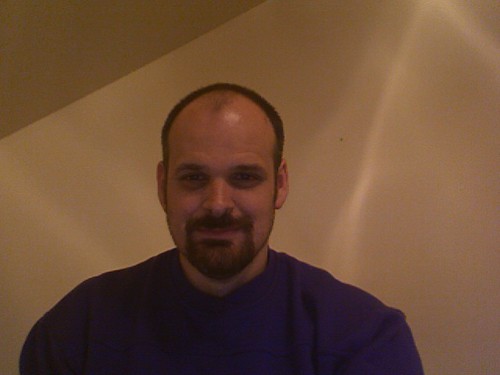Of his own accord
There has been a lot of talk over the last several months about an impending Motu Proprio from Pope Benedict XVI which would relax the restriction placed on the Mass as it was said prior to the Second Vatican Council (i.e. according to the 1962 Missale Romanum). This Mass is the Mass promulgated by Pope Pius V in 1570 (called the Tridentine Mass these days because it was promulgated after the Council of Trent) and used in the Roman Church until 1962. The current Mass of Pope Paul VI became the norm in 1970.
I would never have thought I would have had an interest in this matter, but about a year and a half ago, I attended a Tridentine Mass at St. Patrick's Church in New Orleans. To my surprise, I was profoundly affected by it. The quiet reverence, the chanting voices of the choir, the clouds of incense filling the Church with the aroma of jasmine, the unbelievable focus of the ministers at the altar and the congregation; the whole experience was overwhelmingly beautiful. I have never seen attending Mass in the same light since. I am also keenly aware of abuses which occur in the Mass of Pope Paul VI.
Case in point: at our parish, the beginning of Mass is not heralded by the ringing of a bell to which the choir begins chanting the Introit as the priest and servers process in. It is heralded by a "commentator" saying, "Welcome to Our Lady of the Lake. Today is the 11th Sunday in Ordinary Time. Our Celebrant is ______ and our Deacon is ________. If you wish to follow the readings they can be found on page _____. " Why do I have issue with this? Because it is unnecessary. If you are sitting in the pew and hear this, it is unlikely that you will suddenly come to the realization that, "What?! I thought this was First Baptist!" If you must know what Sunday it is in the liturgical calendar, look in the bulletin.
I suppose I have most issue with the next two statements. First, we have come to encounter Christ, not Fr. _____ and Deacon _______. When the name of the priest and deacon are announced, Christ becomes secondary to Fr. ______ and Deacon ________. As far as announcing where you must turn to follow the readings, this is not the way our faith has been handed on. The readings are proclaimed from the ambo. They are meant to be received by your ear because the spoken word is alive. The written word is merely a symbolic representation of the spoken word on paper. It is the human voice which brings it to life. When we read along as it is being proclaimed, our brains are doing two things at one time, so we cannot be fully focused on the word being proclaimed. We are distracted.
The commentator shows up again after the general intercessions to announce who is bringing up the gifts. Why? The gifts are not the property of the people who are bringing them. The gifts belong to the entire congregation present, and those bearing the gifts to the priest are representing everyone present not just themselves. It is not necessary to stop the flow of the liturgy to bring recognition to them. Then our parish puts the announcements (by the commentator) in the most odd place, after holy communion but before the post-communion prayer. This should be a time of silent reflection and thanksgiving for the great gift of the Eucharist. Instead, we are hearing about the parish blood drive and CCD registration.
I am a cantor at my parish, and occasionally I am asked by the music director to sing from the cantor stand which is at the front of the church. This has become immensely uncomfortable for me because I have come to realize that I distract from the liturgy. I understand the desire is to encourage people to sing, but in reality people sing what they are familiar with, and if they are not familiar with it, they don't, and no matter how much waving of my arms like an orangutan I do, all this does is provide one more distraction for the congregation (not to mention I look like a goof-ball waving my arms about).
So, I have come to realize that what I truly love about the Tridentine Mass is not the Latin language. It is simply Jesus Christ. The incense, the chanting of the choir, the posture of the priests and altar servers, and the long periods of sacred silence all serve to focus attention on the Lord Jesus truly present in the liturgy. Sometimes I find in the Mass as it is celebrated in my parish that people are so busy doing their own thing that His presence is merely an afterthought, and I really struggle with that.
Father will often reiterate in his homily that Christ is truly present on our altar under the appearance of bread and wine. "The actual body, blood, soul and divinity of Christ our God is right there on the altar!" he will exclaim. I can't help but think that while these words are good and obviously true, their effect is dulled by unnecessary distractions. Christ should be our focus from the moment we enter the church, and everything that happens in the liturgy should serve to magnify Him truly present among us.

